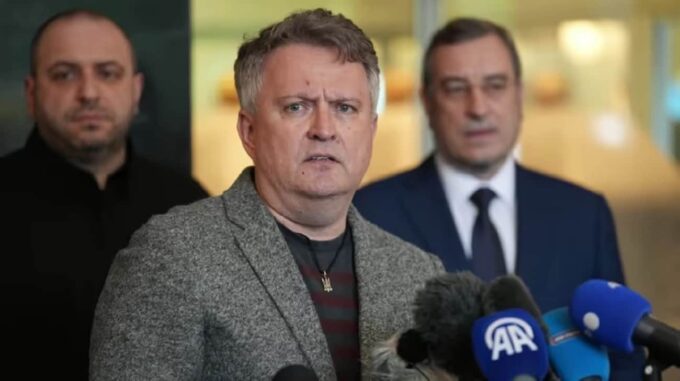Ukrainian and global business circles are actively monitoring recent diplomatic statements made by the United States within the UN Security Council, as these signals provide insight into the future course regarding the conflict in Ukraine and potential measures for its resolution

First Deputy Minister of Foreign Affairs of Ukraine, Serhiy Kyslytsia, emphasizes that the U.S. explicitly and unequivocally called for an unconditional and immediate ceasefire, highlighting this stance in their last two speeches in the Security Council. These words are not merely diplomatic phrasing but serve as evidence of Washington’s serious intentions, which is a very important factor for the further development of events in the region. According to Kyslytsia, American diplomats made several statements of strategic importance, demonstrating that the U.S. does not intend to remain on the sidelines and is convinced that the conflict cannot be resolved through concessions or compromises. On the contrary, they insist that the ceasefire must be unconditional and immediate, without any preconditions or compromises. This is especially relevant in the context of the upcoming Istanbul summit scheduled for June 2, where it is expected that efforts will be made to find pathways to peace. It is important to note that Ukraine has long expressed its readiness for such an unconditional ceasefire and has taken appropriate steps toward its implementation. Meanwhile, Russia, which most often acts as a participant in the conflict, has repeatedly declared its position in Istanbul negotiations, which differs from Ukraine’s. In recent meetings, the Russian delegation cynically dismissed the possibility of an unconditional ceasefire, and their head, Vladimir Medinsky, openly expressed ambitions to continue the war and even threatened to seize new territories—such as Sumy and Kharkiv regions. He mocked Ukrainian readiness, asking how many more years Ukrainians are willing to fight, comparing the conflict to prolonged wars against Sweden, but this sarcasm only underscores the ruthless and deeply aggressive stance of the Russian side. What is especially concerning is that during recent negotiations, the Russians did not hide their threats. They made unacceptable and immoral statements, with Russian representative Vladimir Medinsky openly stating their intention to continue the war without restrictions and even threatening the occupation of additional Ukrainian regions. This increases tensions and warns of the potential collapse of diplomatic efforts. For Ukraine and the international community, it is particularly important that the U.S. reaffirmed its independent and persistent stance on ending the conflict. According to Kyslytsia, their recent speeches at the Security Council demonstrate that the U.S. not only supports Ukraine’s position but also firmly distances itself from any destabilizing or unacceptable terms from Russia. This undoubtedly puts additional pressure on the Russian delegation and underscores the possibility of a positive scenario if the negotiations in Istanbul proceed constructively. Overall, it should be noted that the diplomatic momentum remains quite tense, but with a clear message—ceasefire must be unconditional and immediate, aligning with Ukraine’s strategic interests and those of Western partners. At the same time, Russia’s failure to meet these demands, its threats, and unacceptable conditions could once again delay the prospect of peace and deepen the crisis. Expectations that the conferences and negotiations in Istanbul will help foster understanding remain relevant, but their success largely depends on all parties’ willingness to respect international norms and the sanctioned values of peace.

